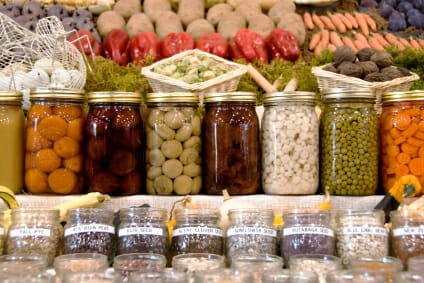 My adventure into the off-the-grid world began when my lights were out – for almost two weeks. Not because I had not paid the bill, not because of a storm, but because of a paperwork mix-up at the power company. And while they figured out their paperwork, I got a crash course in off-the-grid living.
My adventure into the off-the-grid world began when my lights were out – for almost two weeks. Not because I had not paid the bill, not because of a storm, but because of a paperwork mix-up at the power company. And while they figured out their paperwork, I got a crash course in off-the-grid living.
One of the first things that became apparent was how much we rely on refrigeration to cook anything in our modern world. You may not realize it, but I bet almost every meal you make uses at least one ingredient that you reach into the fridge or freezer to pull out. And keeping leftovers becomes even more of a challenge. Learning some alternatives now will ensure you are not stuck eating uninteresting or dangerous food if you are ever forced off-grid. More and more I find myself using my fridge for only a few perishable items, and most of the space for items that don’t need the cold, but stay fresher longer with it, by changing my paradigms of thinking.
Here are 5 ways to store food and cook, without a fridge.
1) Vegan cooking – Unfortunately vegan cooking has gotten a bad rap by being associated with extreme left-wing liberals who value animal life more than human. In reality, all it means is cooking without animal products, which can be both frugal and tasty. Additionally, animal products (meat, eggs, and dairy) comprise most of our needs for refrigeration. Easy to use alternative that have a much longer shelf life including:
● coconut milk can replace milk, and sometimes also eggs or butter
● coconut oil has many of the properties of margarine that other oils don’t
● TVP tastes a little different, but is a decent replacement in a pinch while adding protein
● applesauce in place of eggs in some baking (such as banana bread)
Consider it the last great culinary frontier, and it becomes fun to create delicious coffee cake that nobody would ever guess is vegan.
2) Dried foods – Of course, there are the obvious things like dry beans and grains, and any off-gridder should be able to cook these in ways that are nutritious and yummy, but it is also possible to find common fridge ingredients. Remember things like dry milk in your food storage plans and shop around for powdered eggs and cheese. Drying fruits and vegetables, and making jerky from meat are also skills you should learn and use. This will give you more variety in your pantry and on your plate.
3) Canned foods – Evaporated milk, sweetened condensed milk, and coconut milk are all great substitutes for fresh food counterparts in a pinch. But they taste different and respond differently in recipes. If you just try to make a one-for-one substitution, your meal will fall flat. So take the time now to experiment using these things in recipes instead of your usual way of cooking (while you have the luxury to feed something to the dog if it goes really badly). Another reason to learn to use these things now is that, for both canned and dried foods, you will want to rotate them through your food storage, which you can’t do if you never use them in your regular cooking.
4) Preserving food – Other than meat and dairy, another common item in our list of perishables is fresh fruits and veggies. The reality is that in years past, many of these items were stored for months without refrigeration. The key is proper storage. Consider building your own root cellar. At the very least, protect your food from light, air, and moisture as much as possible. Start learning which foods spoil fastest, and eat those first, leaving the hardier foods for later. And of course, make sure any of your own extra produce is canned or dried as much as possible.
5) Picking it fresh – The closer to the source you can get food, the longer it will keep. Gardening, whether you have a large one, or a small container garden, will help in the produce department. Don’t forget sprouts and winter gardening, to ensure that you have fresh food year round. Aside from that, take the time to find out where the closest sources are to your home (and bug-out location) for grains, meat, eggs, and dairy. Even if you are not going to purchase from them now, it is good to know where the means of production are located. Unwashed, unrefrigerated fresh eggs can stay good for a few days – so if you can get them directly from under the hen, you will have time to eat them before needing to worry about rotten eggs.
The bottom line is, don’t take your cooling units for granted. Really pay attention to when and why you are using them. What are you pulling out that you could be replacing or storing in some other way? Find ways to adjust your cooking to make old favorites new ways, and discover new tastes that you will enjoy too. Any time we can reduce our reliance on a machine, we are getting closer to being off-grid.
 Off The Grid News Better Ideas For Off The Grid Living
Off The Grid News Better Ideas For Off The Grid Living




